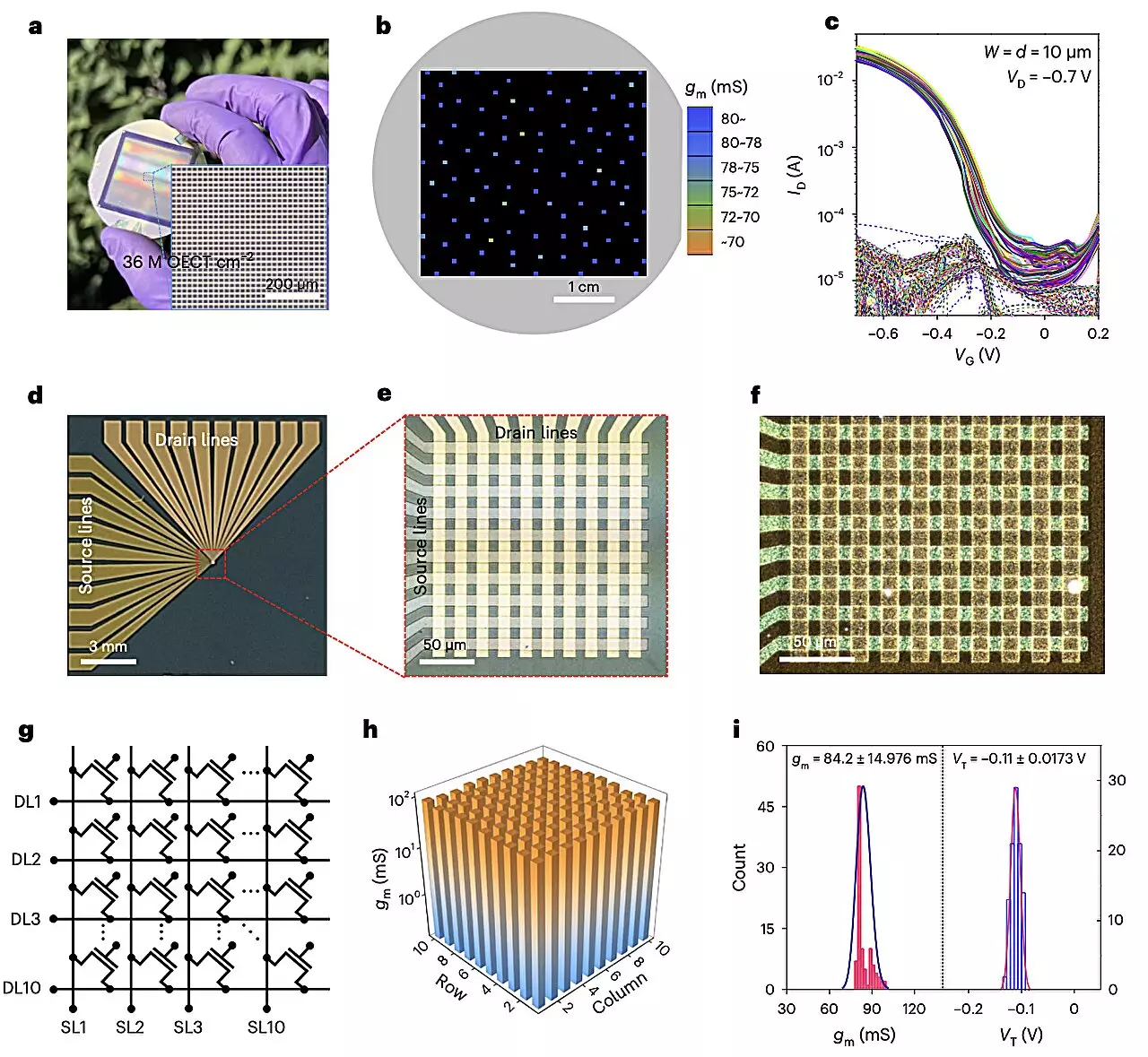

Organic electrochemical transistors (OECTs) have been gaining recognition as a promising class of transistors with the potential to revolutionize the field of electronics. These transistors are based on organic superconducting materials and are known for their ability to modulate electrical current in response to small changes in the voltage applied to their gate electrode. While traditional OECTs have shown limitations in terms of stability and speed, recent research by a team at Northwestern University has outlined a new fabrication strategy that could address these issues and pave the way for innovative applications.
The researchers at Northwestern University have proposed a novel approach to fabricate high-density and mechanically flexible OECTs using electron beam lithography (eBL). By exposing both p- and n-channel organic semiconductor films to a direct beam of electrons, they were able to create ultra-small, high-density patterns on the semiconducting films without the need for masks or chemical solvents. This innovative technique resulted in well-defined conducting channel regions that maintained ionic conductivity and topological continuity required for monolithic integration.
The OECT arrays fabricated using this new approach exhibited impressive performance characteristics, including transconductances ranging from 0.08 to 1.7 S, transient times of less than 100 μs, and stable switching properties of more than 100,000 cycles. Furthermore, the researchers were able to create vertically stacked logic circuits based on these OECTs, such as NOT, NAND, and NOR gates, that demonstrated exceptional operational stability and efficiency. This breakthrough could potentially lead to the development of more robust and reliable OECT circuits in the future.
The recent study by Kim, Pankow, and their colleagues has significant implications for the future of electronics. The scalable fabrication of OECTs through eBL could enable the seamless integration of these transistors into electronic devices, paving the way for the development of advanced biosensors, wearable technologies, and neuromorphic systems. By overcoming the limitations of conventional OECTs, this new fabrication strategy has the potential to unlock a wide range of applications in the fields of healthcare, wearable devices, and brain-inspired computing.
The innovative approach outlined by the researchers at Northwestern University represents a major advancement in the field of organic electrochemical transistors. By leveraging electron beam lithography to fabricate high-density and mechanically flexible OECT arrays, they have demonstrated the potential to enhance the stability and performance of these transistors for a variety of applications. This study opens up exciting possibilities for the future of electronics and paves the way for the development of next-generation OECT-based technologies.
Foreign direct investment (FDI) in developing nations has long been heralded as a path to…
As spring beckons in April and May, stargazers have the unique opportunity to witness nature's…
Active matter, a term that refers to systems where individual components can consume energy to…
In a groundbreaking development, a research team led by Prof. Chen Changlun at the Hefei…
The inevitability of aging is experienced differently across individuals, influenced by a complex interplay of…
When we delve into the cataclysmic events that led to the destruction of Pompeii almost…
This website uses cookies.